There’s so much to love about cheese, and dietitians and nutritionists recommend it. Most people consume cheese as a snack or at the end of a meal, but did you know that some types of cheese are also nutritious for chickens?
Although many types of cheese are safe for your chickens, many of them are not. Discover which types of cheese are appropriate for raising chickens and how you can benefit from feeding your favorite cheeses to your flock.
What is Cheese?
Cheese is a dairy product made from the milk of cows, sheep, or goats. It is created by coagulating milk proteins and then extracting the resulting curds from the whey. There are hundreds of different types of cheese, ranging in texture, flavor, and origin.
Types of Cheese
There are many different types of cheese, and each has a distinct flavor and texture. Some of the most popular types of cheese include:
- Cheddar Cheese: This yellow cheese originated in England. It has a sharp, tangy flavor often used in grilled cheese sandwiches and macaroni and cheese. Cheddar cheese is made from cow’s milk.
- Mozzarella: Mozzarella is a soft, white cheese that originated in Italy. It has a mild, slightly sweet flavor you can find on pizzas and salads.
- Parmesan Cheese: The cheese parmesan originates in Italy and is hard and yellow. It has a sharp, salty flavor. You can use it as a topping on salads and pasta dishes.
- Swiss: Swiss is a firm, yellow cheese that originated in Switzerland. This cheese has a nutty, slightly sweet taste and goes well with quiche and fondue.
- Gouda Cheese: Gouda cheese is a semi-soft, yellow cheese that originated in the Netherlands. It has a mellow, salty flavor and is a common ingredient in sandwiches and grilled cheese sandwiches.
- Feta: Feta is a white and very soft cheese that originated in Greece. Salads and Greek chicken dishes often make use of this tangy dressing.
Can Chickens Eat Cheese of All Types?
Giving cheese to your chickens can be beneficial in many ways, as they are a healthy source of protein and healthy fats. However, not all cheeses are safe for chickens. There have been reports that some cheeses contain mold and too much salt to harm chickens.
Safe Cheese Your Chickens Can Eat
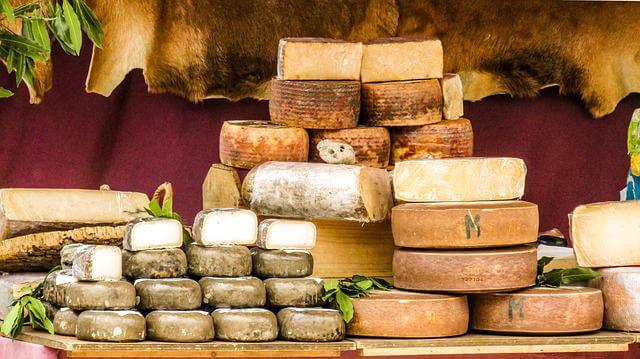
The best types of cheese that chickens can eat include
Goat Cheese
Goat cheese is a healthy option for chickens as it is lower in fat and calories than other types of cheese. It is also a nutrient-rich source of protein, calcium, and phosphorus.
Cottage Cheese
In addition to providing protein and healthy fats, cottage cheese can also benefit chickens. It is an excellent source of calcium, which helps keep their bones strong, and it is rich in other nutrients, vitamins, and minerals. Feed them plain, with low fat to give your chickens the most nutritional benefit from cottage cheese.
Ricotta
Ricotta cheese is a healthy choice for your chickens, as it is lower in salt than other cheeses, so you don’t worry about giving them too much.
Cream
Cream cheese is another good choice for chickens, as it is high in protein and calcium. It is also lower in salt than other cheeses, so you don’t worry about giving them too much.
When Not to Feed Chickens Cheese: Harmful cheese
Can chickens eat cheese of all types? The answer is no.
Some types of cheese are harmful to chickens, and it is unwise to feed them. These include:
Mozzarella
We all know that chickens like to peck at things, and they are especially fond of salty foods. However, feeding them mozzarella cheese is not a sound idea, as it is high in salt.
Too much salt can lead to dehydration and other health problems in chickens. If you do give your chicken mozzarella cheese, be sure to do so in moderation and offer them plenty of fresh water to drink.
Moldy Cheese: Moldy cheese may contain harmful toxins that make chickens sick. If you see any mold on the cheese, throw it away. Avoid placing other moldy food in their chicken feeder too.
Cheese with Excess Salt: Cheese with excess salt can lead to dehydration in chickens. If chicks eat cheese with excess salts, offer them plenty of freshwater to drink in their baby chick waterer.
Cheese with Other Harmful Ingredients: Some cheeses may contain other harmful ingredients, such as artificial colors or flavors. If you are unsure about a particular cheese, it is safer to avoid giving it to your chickens. Blue cheese is a semi-soft cheese that is made from Penicillium and dairy products. Blue cheese does not contain mycotoxins. So, it is safe for the chicken’s diet.
If you notice any signs of illness in your chickens after feeding them cheese, consult a veterinarian for treatment.
Cheese Nutrition Facts
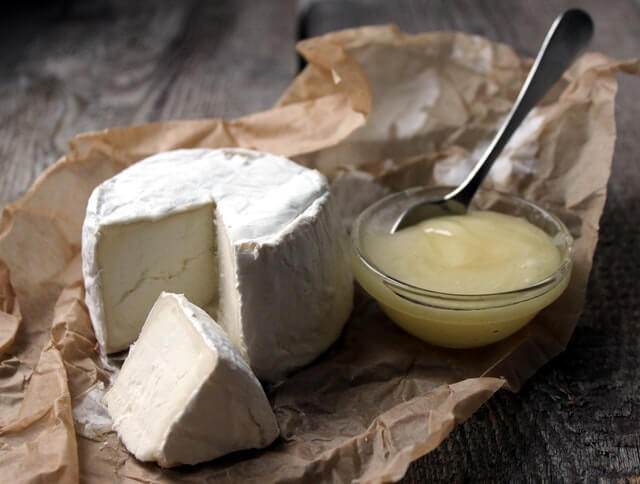
While many people associate cheese with high fat and calorie content, this is not always the case. The fat content of cheese varies depending on the type, with some cheeses containing as little as 1% fat while others may contain up to 60%.
The calorie content also varies, with some cheeses having as few as 50 calories per ounce while others may pack up to 400 calories per ounce.
Overall, cheese has a healthy nutritional profile and is a reliable protein, calcium, phosphorus, and vitamin A source.
Health Benefits of Cheese to Chickens
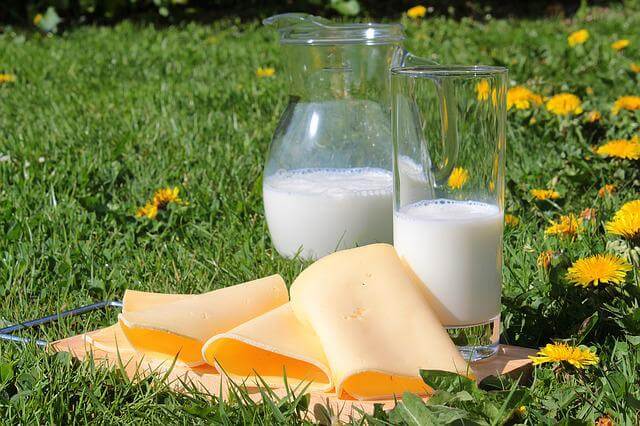
Weight Gain
Cheese is a high-calorie food that can help chickens gain weight and build muscle.
Vitamins and Minerals
Cheese also contains other vitamins and minerals that benefit chickens’ health, such as vitamin A, vitamin D, and phosphorus.
Promotes Bone Health
Cheese can help chickens maintain strong bones and prevent bone-related health problems by providing calcium and other nutrients.
So, if you want to give your chickens a tasty treat or boost their health, cheese is an excellent choice! Just be sure to feed them in moderation and offer plenty of fresh water.
Excellent source of calcium and protein
Cheese is rich in protein. Chickens need protein to build and maintain strong muscles, and cheese is a high source of this nutrient, which helps to keep chickens’ bones strong and healthy.
Slow the aging of the immune system
Cheese also contains antioxidants that can help keep chickens’ immune systems strong and prevent the development of age-related health problems.
Some types, such as cheddar cheese, are rich in antioxidants that can protect chickens from illness and disease.
How To Feed Cheese to Your Chickens
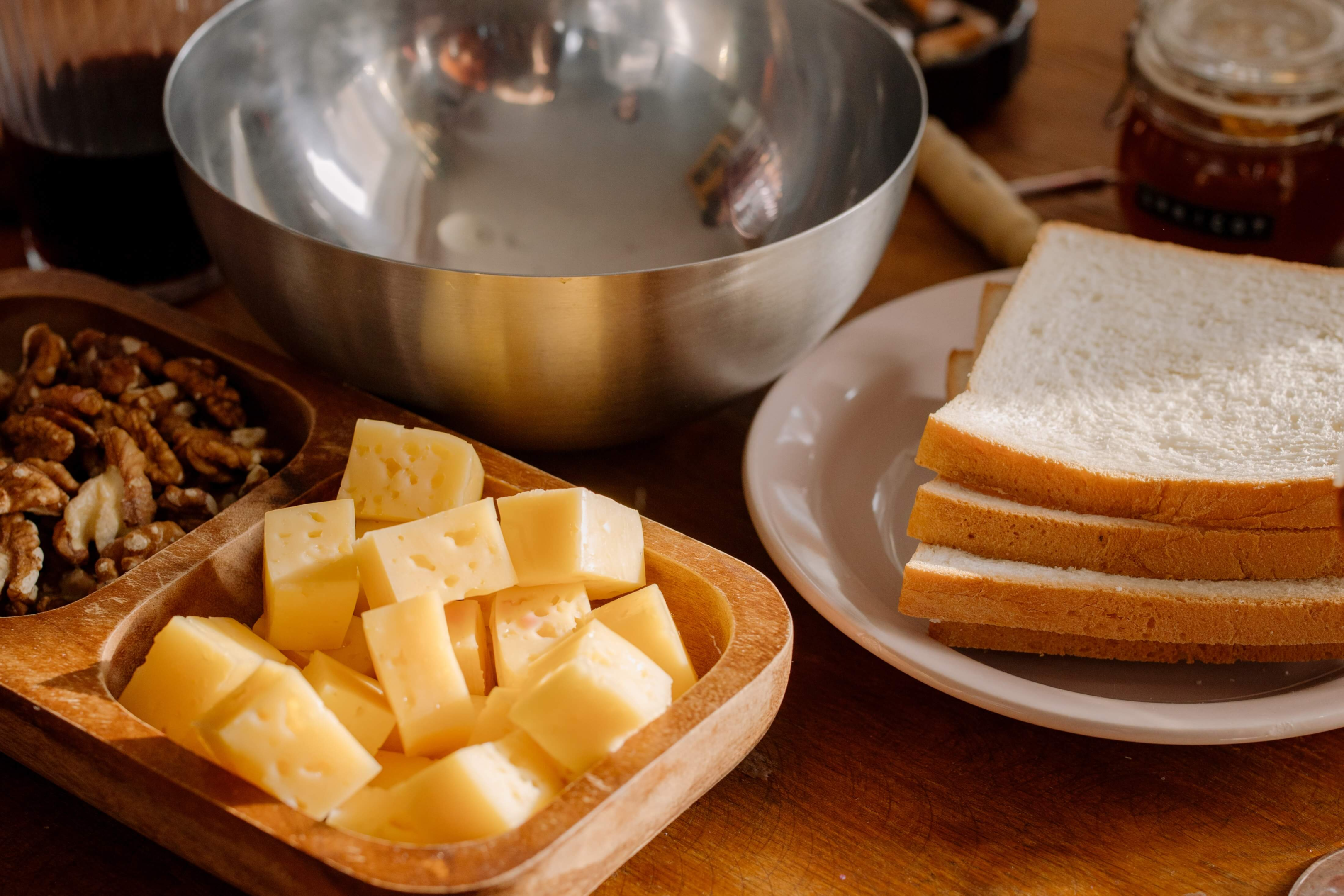
Whole Block of Cheese
One of the easiest and most effective ways to feed cheese to your chickens is to give them a whole block or wedge of cheese. Cut your favorite type of cheese into small chunks and place them in a bowl for your chickens to enjoy. You can also try spreading the cheese on top of pieces of bread or crackers or using it to make grilled cheese sandwiches or macaroni and cheese.
Cut Or Sliced Cheese
Another option for feeding cheese to your chickens is cutting or slicing it into smaller pieces. Your chickens will be able to handle the cheese more efficiently this way, and it is less likely to contain mold or other toxins. Some different types of sliced cheese include goat cheese, feta cheese, cottage cheese, ricotta cheese, and cream cheese.
Cheese Crumbles
If you are looking for an easy way to feed cheese to your chickens, using small crumbled pieces is a great option. They will be able to pick up the cheese easier and enjoy the nutrients.
Shredded Cheese
For chickens, it is recommended to feed them shredded cheese. They get all the vitamins and minerals they need, and they’re easier to digest.
Mixing Cheese with Feeds
An easy way to get your chickens to eat more cheese is to mix it into their chicken feed. You can do it by hand or using an actual feed mixer. It will ensure that even picky chickens will get a substantial dose of cheese each day.
You can also make cheese puffs with shredded cheese. Do you think chickens can eat cheese puffs?
How Much Cheese Should You Feed Your Chickens?
It will be best to serve chicken cheese in moderation as a general rule of thumb. Too much cheese can lead to health problems, such as obesity, dehydration, and salt poisoning. A general rule of thumb is to give your chickens no more than 1 ounce of cheese per day. If you are giving them shredded cheese, be sure to offer them plenty of freshwater to drink.
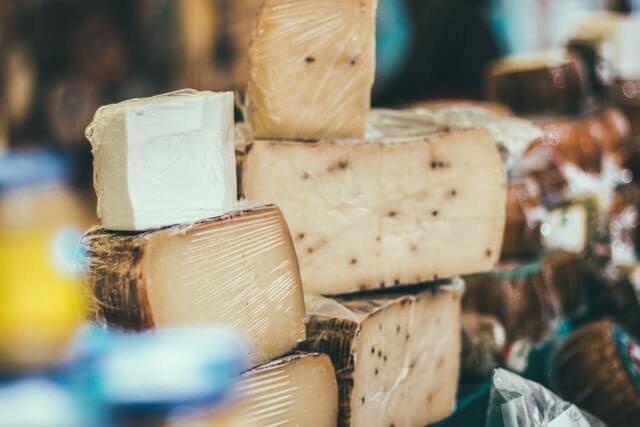
Portion Control
If you have a large flock of chickens or are worried about them overeating cheese, it is essential to provide them with portion control.
One option for keeping track of how much your chickens are eating is to use a measuring cup. Place the measuring cup in your chicken coop or run and fill it with cheese while feeding your chickens. This way, they will not overeat and still get plenty to eat each day.
Can chicks eat cheese too?
It depends on the individual chick and the type of cheese. Some cheeses, such as mozzarella or cheddar cheese, are high in salt and may not be healthy for very young chickens. However, if baby chickens eat cheese of other types, such as goat or feta cheese. These are safe for their health.
Production of Cheese
Cheese is produced by coagulating milk proteins and then extracting the resulting curds from the whey. There are two main types of cheese: fresh cheese and aged cheese.
Fresh cheese is made from pasteurized milk, while aged cheese gets its flavor from raw milk.
First, the milk is heated to 185 degrees Fahrenheit (or 85 degrees Celsius) to make fresh cheese, which kills any pathogens, then cooled to around 105 degrees (or 40 degrees Celsius).
Next, a starter culture is put in the milk, and it is allowed to sit until it becomes thick.
Finally, rennet or an acid such as vinegar or lemon juice is added to thicken the milk proteins and separate the curds from the whey.
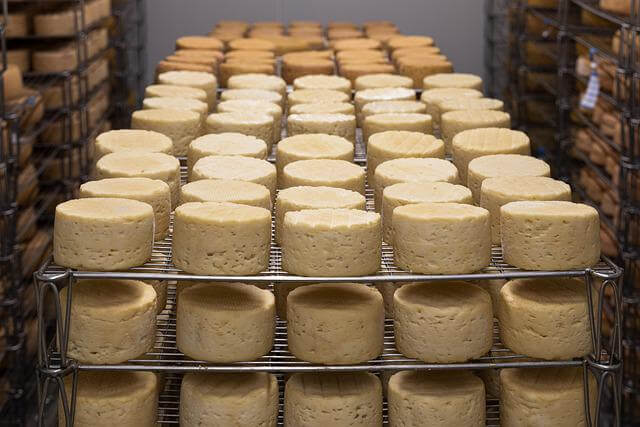
Can Chickens Eat Cheese? Final Thoughts
You now know more about the benefits of feeding cheese to your chickens and how you can best do so. Whether you are looking for ways to improve their diet, keep them healthy, or simply give them a treat, adding cheese to their menu is an excellent choice. It’s important to be aware that too much cheese can lead to health problems in some cases.
Just be sure to choose the suitable types of cheese and avoid any that may be harmful or too salty. With this advice, your chickens will surely enjoy their next snack!

